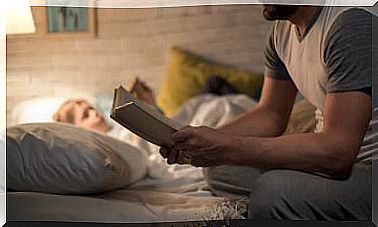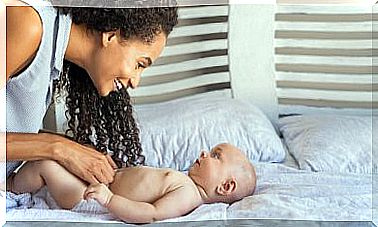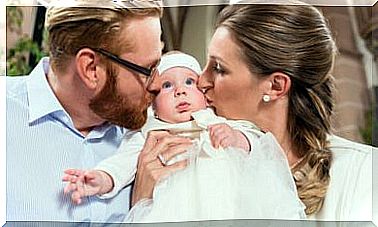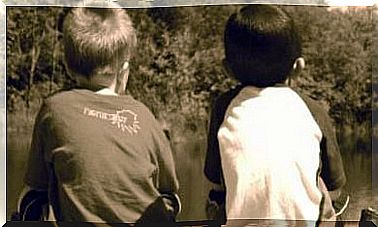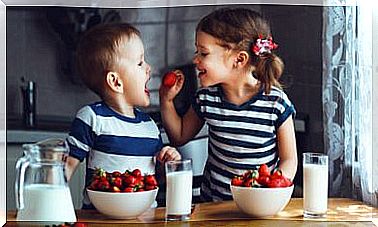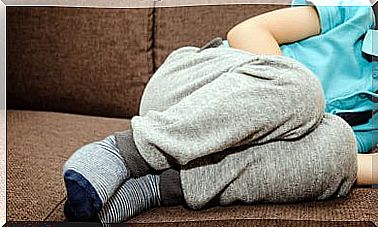Fear In Childhood

Fear in childhood is a universal and omnipresent phenomenon in all cultures. The only explanation for this regularity is that fear has an important adaptive value component for the child.
On a small scale, these feelings of fear in children are always unpleasant, despite the fact that they can fulfill a survival function, such as the fact of adapting to a situation considered dangerous by the child.
Also, when fear has nothing to do with a real cause, it can significantly alter your ability to cope with everyday situations.
There is no doubt that fears are evolutionary and normal at a certain age. As the child grows and his psychological system matures, the natural tendency is for them to gradually disappear.
In spite of everything, in some cases these fears can last over time until they lead to disorders that need professional attention.
Origins of fear in childhood
1.- Family patterns
Parents with a tendency to be fearful or with a history of anxiety disorders tend to have children with fear or anxiety in greater proportions than parents who are not.
2.- Negative information
Negative information about a specific situation or stimulus can be a source that generates fear. The capacity for conviction will be conditioned by what is most relevant for the child and the person issuing the information.
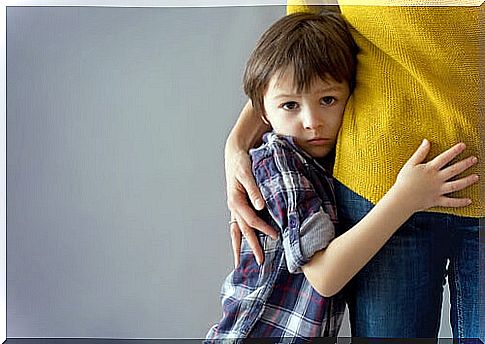
3.- Direct learning
There is a type of fear that is acquired by direct learning, such as the fear of not being able to breathe. This is the case of children who have suffered asthma attacks or have suddenly awakened at night with the sensation of not being able to breathe.
4.- Conditioning
Another form of acquisition is by conditioning. Consider a child who was severely burned as a child when he played with a firecracker that exploded in his hands. Probably the mere sight of them or their noise will cause fear and rejection.
5.- Unpleasant experiences
Finally, we include other unpleasant or traumatic life experiences as a possible generator of fears in children, such as witnessing abuse, fights or situations that affect emotionally (accidents, death of a loved one, etc.).
In the worst case, these fears can lead to more serious clinical disorders such as specific phobias, generalized anxiety or post-traumatic stress.
“It was great advice that one day I heard that they gave a child: you always have to do the things that you are afraid of”
—Ralph Waldo Emerson—
How to combat fear in childhood?
When the fears are more severe, persistent and significantly alter the normal rhythm of the child in his family, school or social environment, we can find disorders that should be subject to specialized treatment.
Follow the following tips to combat your child’s childhood fear:
Live the situation normally
You should not show concern or distress. Remember that frequently the child internalizes the behaviors and perceives the emotional state of the parents.
Do not force the child to do what scares him
When it comes to fears that significantly affect the development and daily life of the child, you must draw up an intervention plan in order to help him.
Guide your child
Some psychological techniques use the so-called emotional staging, where the various approaches of the child to the feared object or situation are accompanied by prior instructions.
In it the child must adopt the role of assistant or collaborator of a fictional hero of his choice. It is the most widely used psychological treatment for anxiety disorders, fears and phobias.
Act using a model
One of the parents can perform the dreaded behavior (for example, being in the dark room) to teach the child that nothing is wrong. However, it is most effective when the model is the same age as the child.
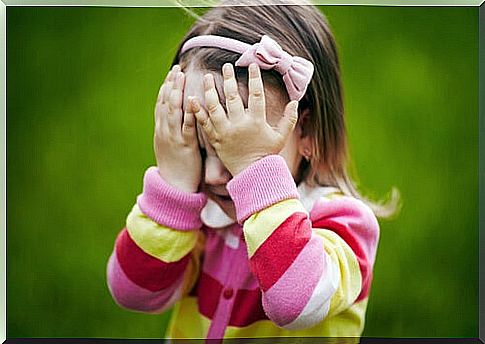
Don’t ridicule the little one
Always avoid ridiculing the child for their fears, especially in front of their peers. Attention should be directed to possible solutions, not to punitive consequences.
Anxiety
Related to fears, anxiety is also often spoken of, since it is present in all processes. The term is used to highlight the important psychophysiological alterations that occur in the organism of children when they experience intense fear.
This state of activation can occur before a specific stimulus (specific phobia) or also in the absence of any stimulus. Simply, the child feels the anguish but is not able to describe the causes, since these are very diffuse.
In short, you should not worry if your child presents fear in childhood, since it is something normal and should not be a cause for concern as long as they are not disproportionate. Using the tips above will help your child get through it!



